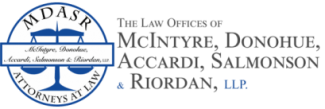We have seen displays of heroism and community in the face of natural disasters and emergencies. Civilians, first responders, communities of every background band together to help one another. Our immediate reaction is to assist when disaster strikes. Some may get injured during such tasks, and one has to ask-what happens if that’s part of your job?
Many states have regulations in place addressing the needs of workers and laborers in regard to natural disasters or emergency situations. Many workers may sustain injuries due to rescue and recovery missions, whether or not they are a first responder or part of an emergency services team. Others may encounter hazardous working conditions while trying to rebuild. Some of these regulations involve the expedition of prescriptions, procedures, and benefits so claimants aren’t left without medicine or wages. Insurance companies are also developing methods to make care and benefits more accessible-according to an article on BusinessInsurance.com, Chubb Ltd. managed to reach out to 400 claimants prior to the wreckage sustained when Hurricane Florence hit the southern U.S. in 2018. OSHA also released a statement regarding employer and employee safety after Hurricane Michael, the strongest storm on record for the Florida Panhandle.
The best way for employers and employees alike to stay as safe as possible in an emergency situation is to not only communicate, but also adhere to the planned out EAP, or Emergency Action Plan. As an OSHA requirement, employers that have 10 or more employees are required to have an Emergency Action Plan. This is a formal list of steps and procedures to take during an emergency or natural disaster. These include things like assigned training and roles for employees during an emergency, a way to report and communicate the emergency, and other related requirements.
‘Plan Ahead’: OSHA Spotlights Resources for Emergency Preparedness, Response
What employers should know as Hurricane Florence approaches
Natural Disaster Recovery Efforts: What You Should Know About Workers Compensation Policies
Disaster Preparedness, Recovery and Employee Safety During Hurricane Season

Leave A Comment